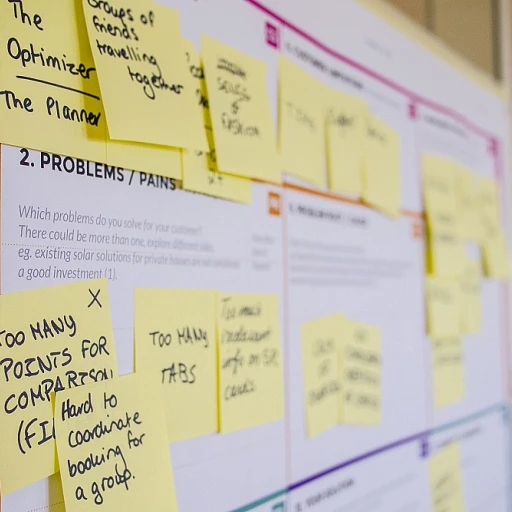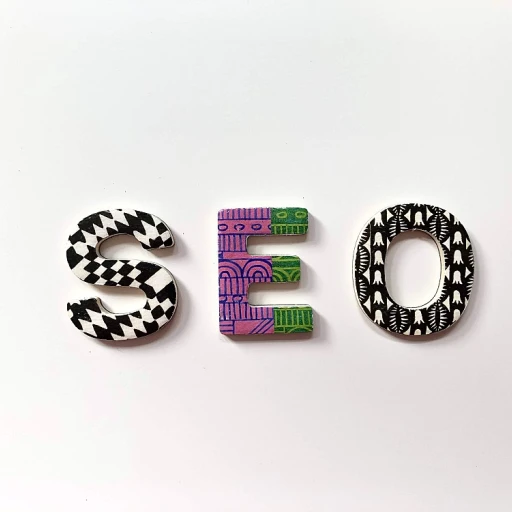
Understanding Predictive Analytics in SEO
Demystifying Predictive Analytics in Search Optimization
The fusion of predictive analytics with SEO represents a frontier marked by exponential advancements—and for a savvy digital marketer or content creator, understanding this synthesis is paramount. Predictive analytics is a statistical technique involving data mining, machine learning, and predictive modeling to analyze current and historical facts, thereby making predictions about future or otherwise unknown events.
At its core, the practice hinges on identifying patterns within vast data sets, extracting valuable insights, and utilizing these findings to preemptively tailor marketing strategies that align with potential future search trends. This intricate discipline allows businesses to not only react to market changes but to stay one step ahead of them.
From optimizing keyword strategies to fine-tuning content delivery, the implications of predictive analytics in SEO are immense. Businesses can now predict search intent, consumer behavior, and content relevancy with a degree of precision hitherto deemed unattainable. Effectively, integrating predictive analytics means transitioning from a reactive to a proactive stance in search engine optimization.
Riding the Wave of Predictive Data Analysis
Predictive analytics in SEO transcends mere guesswork; it's about leveraging advanced prediction algorithms to foresee future trends and behaviors. Google's ever-evolving algorithms have long been influenced by predictive analytics, factoring in user behavior predictions to present the most accurate search results.
Through the collection and analysis of data such as search query volume, user engagement metrics, and SERP (Search Engine Results Pages) fluctuations, SEO professionals can now fabricate strategies that resonate with the likely direction of market demand. Predictive analytics helps in identifying not just what users are searching for, but why they are searching for it, which is pivotal in crafting content that satisfies user intent.
In essence, predictive analytics empowers SEO strategists to build a more anticipatory model of content creation—where insights guide not just the what, but the when and how of strategy execution.
Statistics from numerous studies have shown that companies utilizing predictive analytics for their SEO efforts see a marked improvement in their rankings, organic traffic, and overall online visibility. This illustrative data underscores the practical efficacy of predictive analytics in SEO.
AI Search Forecasting: The Game Changer
The Revolutionary Impact of Machine Learning on Search
In the ever-evolving world of search engine optimization (SEO), artificial intelligence (AI) search forecasting is rapidly emerging as a transformative technology. This pioneering approach uses advanced machine learning algorithms to predict search trends and patterns. By analyzing vast datasets and recognizing subtle shifts in user behavior, AI enables SEO professionals to anticipate market changes with remarkable accuracy.
From Reactive to Proactive: AI-Powered Predictions
Typically, SEO strategies have been reactive, with analysts looking at historical data to inform their decisions. Now, AI search forecasting takes a proactive stance. Gone are the days when digital marketers would react to trends after they unfolded. The integration of machine learning tools means we can now map out the search landscape of tomorrow, steering campaigns proactively with data-driven foresight, thus ensuring a future-proof SEO strategy.
For instance, a revolutionary aspect of AI is its ability to predict user intent. As algorithms learn from searches, they can forecast emerging queries before they become apparent within the market, enabling content creators to craft solutions ahead of the curve. Think of it as having a crystal ball for SEO, one that offers a competitive edge by aligning content with future search behaviors.
Personalized SEO at Scale
AI search forecasting also brings personalization into the fray. Not only can it predict general market trends, but it can also tailor strategies to individual users or segments. Machine learning dives into granular details, analyzing various demographics and psychographics to personalize search experiences and improve user engagement. By tapping into this granular data, the AI can enhance the user's journey through exceptionally targeted SEO that resonates on a personal level.
Empowering SEO with Predictive Search Volume Analysis
Predicting search volume is integral to SEO, and AI takes it to the next level. By processing current search trends and overlaying historical data, machine learning models can sensibly forecast future search volumes. Websites and businesses can therefore optimize their content calendar and keyword strategies, ready to capture traffic as soon as demand spikes—positioning them at the forefront of the wave rather than paddling behind it.
Furthermore, sophisticated algorithms can even predict the rise of new keywords or the decline of current ones, enabling SEO experts to allocate resources more efficiently and stay ahead of the competition. Prediction algorithms focus not just on the 'when' but also on the 'what', mapping future keyword landscapes with a precision that was once beyond reach.
Case Studies and Evidence of Success
Incorporating real-world case studies and success stories helps solidify the impact of AI on predictive SEO. Leading brands and digital marketing agencies are leveraging AI search forecasting to vastly improve their SEO outcomes. With empirical evidence and statistical validation, it's clear that SEO informed by predictive analytics isn't just theoretical—it's a proven method for achieving and maintaining a top spot in search engine result pages (SERPs).
By meticulously analyzing past SEO trends and predicting future shifts, AI equips us with the insights needed to navigate the tumultuous waters of digital marketing. It facilitates a dynamic approach where SEO specialists can adapt to changes before they materialize, all based on predictive analytics' actionable intelligence.
Developing Future-Proof SEO Strategies with AI Insights
Implementing AI-Driven SEO for Long-Term Success
In an era where digital landscapes are dynamically evolving, leveraging the prowess of AI has never been more critical for SEO professionals. By adopting AI-driven insights, one can craft an SEO strategy that is not just reactive, but proactive, clearly focused on longevity and sustained visibility online. Predictive analytics in SEO can shine a light on trends before they enter the mainstream, granting early adopters a significant advantage in the digital marketplace.
Optimizing for Future Algorithm Changes with AI
Search engine algorithms are a moving target, but AI swings the odds in favor of SEO specialists. Utilizing AI's deep learning capabilities, SEO experts can identify probable algorithmic shifts and adjust their strategies accordingly. This anticipatory action is invaluable, as it allows websites to maintain or improve their search rankings, even as the digital terrain shifts underneath them.
Crucial to this approach is understanding the role of machine learning in SEO. As algorithms become more sophisticated, so must our strategies. AI feeds on data, and when harnessed correctly, it can predict which SEO factors will become more or less important, empowering your content to remain relevant and competitive.
Maximizing Content Impact with AI-Based Topic Modelling
Another aspect where AI aids in developing powerful SEO strategies is content generation and optimization. By applying natural language processing (NLP) and topic modelling, AI tools can analyze high-ranking content to unearth underlying patterns and topics. This knowledge enables SEO strategists to create content that matches searcher intent more closely, an increasingly crucial ranking factor as search engines evolve to better understand user queries.
By considering the latent semantics of search queries, AI-driven SEO tools can suggest vital subtopics and keywords, ensuring comprehensive coverage that search engines favour. This data-informed approach not only enhances content relevance but also strengthens the overall topic authority of a website.
Fostering Adaptive Link Acquisition Strategies
The acquisition of high-quality backlinks has been a cornerstone of successful SEO tactics, and this remains true in the era of AI. What changes, however, is the approach. With predictive analytics, you gain insights into the types of content likely to generate buzz and backlinks over time. You can then prioritize creating this content to build a robust profile with links that accumulate value as predicted trends materialize.
Forward-thinking link acquisition involves understanding and predicting where your industry's digital conversations are heading. By analyzing link velocity trends, AI tools give you a glimpse into the future, enabling you to align your content with the trajectories of growing domains and online communities.
Building Adaptive User Experience (UX) for Better Engagement
SEO isn't just about pleasing search engines; it's fundamentally about delivering a seamless user experience. AI can extrapolate from user behavior data to predict UX trends, permitting websites to adapt their interface and content delivery before competitors do. Such preemptive optimizations can drastically improve engagement metrics, which are increasingly significant for SEO success.
Integrating a sophisticated UX that anticipates and exceeds user expectations will likely yield a higher retention rate, longer session durations, and more meaningful interactions—all positive signals to search engines.
Embracing AI in SEO doesn't mean displacing the human touch; it's about enhancing human capabilities with powerful computational intelligence. Search optimization is about to become more precise, predictive, and profitable than ever, distinguishing the innovators from the followers. As you steer your digital strategy into the future, let AI be your compass, guiding you through the ever-shifting sands of search engine landscapes, and cementing your place at the forefront of online visibility.
SEO Trends Analysis: Learning from the Past, Predicting the Future
SEO Trends Analysis: Learning from the Past, Predicting the Future
As we delve into the intricacies of search engine optimization, it's increasingly clear that understanding SEO trends is like mastering a living language; it's dynamic, nuanced, and perpetually evolving. The extensive application of predictive analytics empowers SEO professionals to not merely react to changes in search engine algorithms and user behavior but to anticipate and adapt to them proactively. Stepping beyond the traditional reactive approach, we now have the capacity to harness historical data, combined with AI-driven predictions, to inform robust, future-proof SEO strategies.
Deciphering Patterns with Big Data
Big data has become the cornerstone of trend analysis. The vast amount of information available is a veritable goldmine for discerning SEO patterns. Our ability to process and learn from past SEO trends has been given a technological edge with the integration of sophisticated AI tools. Utilizing this immense dataset allows us to identify patterns that could inform future strategies. We're not only looking at keywords and backlinks but also at emerging user behaviors and preferences.
One must not forget the significance of the impact of artificial intelligence on search dynamics. Such technologies can sift through years of data to detect subtle shifts that signify a forthcoming trend – months, if not years, before they become mainstream.
Correlating Predictive Analytics with User Intent
There's an ever-increasing emphasis on aligning content with user intent – a crucial SEO element. As we journey through AI's predictive landscape, one sees the blending of search history with real-time data, enabling a precise understanding of what users are likely to seek next. Considering the SEO keyword trends, AI predictive models can suggest shifts in popular queries and anticipated questions based on current news, seasonal changes, or even socio-economic factors.
This alignment of predictions with user intent can result in the creation of content that connects deeply and meaningfully with the audience – often even before they're aware of their own evolving needs and desires.
Embracing AI-Driven Content Optimization
Turning to content creation, AI's role in SEO demands attention. It's no longer merely about peppering articles with high-ranking keywords but about producing content that resonates with readers and search engines alike. AI's predictive models analyze readability, engagement levels, and keyword relevance to generate suggestions for content that can achieve a high SEO ranking.
One can leverage this profound analytical power to craft articles, blogs, and webpages that not only are SEO-rich but also add genuine value to the user experience. By predicting shifts in content engagement trends, AI assists in shaping your editorial calendar: it tells you what to write, when to publish, and how to connect with audiences strategically.
The intersection of AI and SEO is an intriguing and fruitful one, offering a competitive edge to those who skilfully navigate its waters. It's not just about understanding SEO trends, but truly mastering them to create a compelling online presence that stands the test of time.













